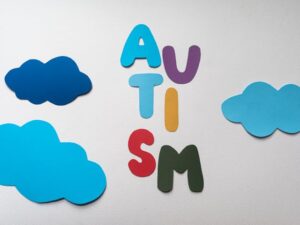Autism Spectrum Disorder (ASD) is a neurodevelopmental condition that affects children's ability to interact socially, communicate verbally, and display typical behavior patterns. Symptoms generally begin to appear in early childhood, though the severity and nature of these signs can vary. Early detection and understanding of these behaviors can help parents seek appropriate interventions and support for their child.
1. Difficulties with Social Interaction
Children with autism often face challenges in social engagement, which may manifest in the following ways:
- Lack of eye contact: Autistic children may avoid making eye contact or struggle to maintain it during interactions, limiting non-verbal communication.
- Limited interest in relationships: They might show little desire to engage with others, preferring solitary activities or remaining absorbed in their own world.
- Difficulty interpreting social cues: These children may find it hard to understand others' facial expressions, body language, or tone of voice, leading to misunderstandings.
- Limited emotional response: When someone attempts to interact with them or shows affection, they may not respond appropriately, or they might appear indifferent.
2. Language and Communication Challenges
Language development and communication are often affected in children with autism:
- Delayed speech development: Many autistic children experience delays in speech, with some not speaking by the age of two or having a very limited vocabulary.
- Echolalia (repeating words or phrases): Instead of using their own words, children may repeat what others say, a common behavior known as echolalia.
- Struggles with two-way communication: Even if they can speak, maintaining a back-and-forth conversation may be challenging, as exchanges tend to be brief or one-sided.
- Unusual speech patterns: Some autistic children may have an atypical tone of voice, speaking either too loudly or softly, or with an odd rhythm.
3. Repetitive Behaviors and Rigid Interests
Children with autism often display repetitive actions and have narrow interests:
- Repetitive physical movements: Hand-flapping, spinning, or rocking back and forth are common repetitive behaviors that they may use to manage stress or self-soothe.
- Strong dependence on routines: Any disruption to their routine, even small changes, can lead to discomfort or anxiety, as they tend to be rigid in their daily habits.
- Intense focus on specific topics: Many autistic children fixate on certain subjects or objects, becoming deeply immersed in specific details for extended periods.
- Sensory sensitivities: Some children may be overly sensitive to sounds, lights, or textures, while others may show little or no reaction to sensory inputs that typically cause discomfort.
4. Sensory and Motor Skill Abnormalities
In addition to behavioral and communication challenges, autism may also involve sensory and motor difficulties:
- Motor coordination issues: Many children with autism have poor motor skills, making them appear clumsy or less coordinated in tasks like walking or using their hands for fine movements.
- Altered pain perception: Some children may not react to pain as expected, showing less sensitivity to injuries or discomfort.
- Unusual responses to environmental stimuli: They might overreact or underreact to everyday stimuli, such as loud noises, bright lights, or certain textures.
5. Emotional Regulation Difficulties
Emotional control is another area where children with autism may struggle:
- Sudden emotional outbursts: They may have intense emotional responses to minor triggers, often resulting in crying, screaming, or panic attacks.
- Self-soothing behaviors: Some children may engage in self-stimulatory behavior, such as biting their fingers or tapping themselves, to cope with overwhelming emotions or sensory inputs.
- Short attention span: It can be difficult for autistic children to focus for long periods, especially in settings that involve complex or multitasking activities.
6. Other Health-Related Issues
Autism is sometimes accompanied by additional health challenges, such as:
- Sleep disturbances: Many children with autism experience difficulty falling asleep or wake frequently during the night.
- Digestive problems: Gastrointestinal issues, like constipation or diarrhea, may also be common among children with autism.
Early Detection and Intervention
Early diagnosis of autism and timely intervention can make a significant difference in a child’s development. If parents observe any of the signs mentioned above, consulting a healthcare professional for an evaluation is crucial. With the right therapies, such as behavioral therapy or speech therapy, many children on the autism spectrum can improve their communication and social skills.













